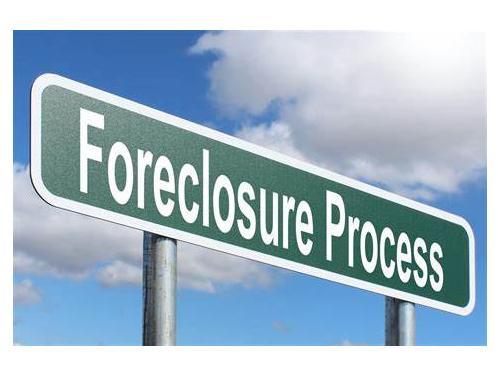A Buyer's Guide to Foreclosed Homes

There are many steps which lead to a home being foreclosed upon. Since we are here for a Buyer Guide, I will skip ahead to the purchase process.
The path to purchasing a foreclosed home begins when the order for conducting the sale is granted, and the property is officially listed for sale. How does this process differ from a traditional home purchase?
UNDERSTANDING "AS-IS" SALES
Foreclosed properties are typically sold in "as-is" condition, meaning that on the day of possession, the buyer has limited recourse if they encounter damage or missing items. Unlike standard purchases, you won't be able to negotiate for appliances, window coverings, or other chattels. It is possible that appliances, cabinets or anything else of value may be removed prior to the possession date, so be prepared for this.
NAVIGATING COMPLETION AND POSSESSION
One significant distinction in purchasing a foreclosure is the absence of a specified completion and possession date in your initial offer. At times, this date could be either 28 days after court approval for occupied homes or just 10 days for vacant properties. However, the court may extend this period if deemed necessary.
OFFERS AND CONDITIONS
The first offer may include various conditions, such as a home inspection, fire and property insurance, or a title search. The first offer will be similar to a "regular" house offer in that the Buyer has a set amount of time to complete their home inspection or fulfill any other subjects/conditions as outlined in the offer contract. Once these conditions are removed, a court date is set. But here's the catch – This first offer might not be the only offer on the table.
THE COURTROOM SHOWDOWN: MULTIPLE OFFERS
On the court date, any potential Buyers or their agent will bring their very best offer,. Offers may not have any conditions and the Buyers/buyers' agent will have a bank draft to accompany the offer. When multiple offers are received on the court date, the court decides which is the most favorable and will be accepted. This means that there is a possibility of the original offer being outbid in court. Note: the Buyer with the original offer is able to make a new bid on the court date also. None of the Buyers will know what the other offers are, therefore they must come with their very best final offer.
NO GUARANTEES, BUT POTENTIAL REWARDS
Purchasing a foreclosed property can indeed be an opportunity, but it's not without its pitfalls. The process lacks the certainty that traditional buyers enjoy, and it can be intimidating. As a result, it may deter a significant portion of potential buyers.
IN CONCLUSION
While buying a foreclosed property may offer a unique chance to acquire real estate at a reduced cost depending on the market and location, it's essential to be aware of the uncertainties and challenges involved in the process. With the right preparation and guidance, however, this route to homeownership can be a rewarding venture.
AVOID THESE 8 COSTLY MISTAKES: A Homebuyer's Guide
 Buying your first home (or your 10th!) is an exciting milestone, but it can also be overwhelming. With so much information and advice out there, it's crucial to navigate the home buying process wisely to prevent costly errors (I'm here to help with that!) In this blog post, we'll explore the eight most common mistakes that homebuyers make, and provide valuable insights to help you make informed decisions.
Buying your first home (or your 10th!) is an exciting milestone, but it can also be overwhelming. With so much information and advice out there, it's crucial to navigate the home buying process wisely to prevent costly errors (I'm here to help with that!) In this blog post, we'll explore the eight most common mistakes that homebuyers make, and provide valuable insights to help you make informed decisions.
MISTAKE 1: SKIPPING FINANCIAL QUALIFICATION
One of the biggest blunders is rushing into house hunting without getting financially qualified first. Before hitting the pavement, consult with a local lender to determine your budget. Don't rely on online calculators or estimations; trust the experts to guide you in the right direction. Having a mortgage pre-qualification ensures you know what price range of homes you should be viewing. It also gives you an advantage during offer negotiations. If you can provide proof of qualification tot he seller, they will know you are prepared and serious.
MISTAKE 2: CHASING PERFECTION
Creating an extensive checklist of dream home features is natural, but be prepared to compromise. Finding a house that checks every box is extremely rare, and you might end up stretching your budget unrealistically. Be flexible and prioritize what truly matters.
MISTAKE 3: TRYING TO USE THE LISTING AGENT AS YOUR REPRESENTATIVE
Avoid the temptation to use the listing agent to represent you, in British Columbia this is actually prohibited. The seller's agent's loyalty lies with the seller, and it's their job to do whatever they can to make the most money for their client. This can mean using your details (your budget, your timeline etc) to get a higher sale price for the seller. It's essential to have someone in your corner who can advocate for your interests. Research and find a skilled buyer's agent who will navigate the process with your best interests at heart.
MISTAKE 4: OVERVALUING ONLINE ESTIMATES
Don't put too much trust in online home value estimates. Online platforms may provide ballpark figures, but they often lack accuracy. Instead, rely on recent sold listings and market comparisons to gauge a property's real value. Your agent can run reports for you including market trends, recent similar sales and what's happening in certain neighborhoods.
MISTAKE 5: UNDERESTIMATING EXPENSES
Owning a home comes with various expenses beyond the purchase price, including utilities and unexpected repairs. Plan for maintenance costs, typically around 1% of your home's purchase price annually. Prepare for the inevitable wear and tear that comes with homeownership.
MISTAKE 6: FEELING RUSHED
While it's essential to act swiftly in a competitive market, don't allow anyone to pressure you into making hasty decisions. Take your time to analyze properties, but be ready to act decisively when you find the right fit. Your real estate agent will let you know of strategies which will give you some breathing room and ensure you're confident in your decision.
MISTAKE 7: FALLING IN LOVE WITH THE DECOR
Avoid falling head over heels for a property's furniture or the seller's design style. These things can cloud your judgment, leading to overpayment or disappointment. See past the seller's decor and visualize what it will look like once they move out.
MISTAKE 8: NOT SEEING PAST THE SELLER'S "STUFF"
Alternatively, don't discredit a house because you don't like the seller's decor or can't see past their clutter. The "stuff" won't be there when you move in. Try to imagine it empty, or better yet imagine it with your own furniture in it.
SUMMARY
In conclusion, buying your first home is a significant step, and avoiding these common mistakes can save you time, money, and stress. Prioritize financial readiness, research, and clear goals to make the best decision for your future. Happy house hunting!
Secrets of Savvy Househunters
Experienced home buyers know that there’s more to look for than a good neighbourhood and a sturdy foundation. They shop with their hearts, their heads – and with the expert advice of a real estate professional. Before you get caught up in the excitement of searching for the perfect home, here are some savvy steps to follow.
1. Know how much you want to spend
Don’t get caught in that trap of finding a great home that you can’t afford. Do your homework and define your budget before hand. Get a pre-approved mortgage through your lender of choice, or I can provide you with a list of options from my trusted network.
2. Scope out the neighbourhoods
Before you start looking at individual homes, figure out which neighbourhoods you would prefer to live in. How close are schools? Stores? Access to highways and public transit? These all have an impact. Also, check common areas in a community like parks and playgrounds – they can say a lot about how the residents feel about their neighbourhood, so look for tell-tale signs of neglect or proud upkeep. I can also let you know how well certain neighbourhoods are selling, which is a good indicator of where people want to live.
3. Make a list
Smart shoppers never head to the grocery store without a list and neither should you when you head out to view properties. Organize your thoughts on paper and come up with a wish list that you can refer to. Divide it up into must-haves, would-be-nice items and deal breakers. Carry this list with you so that you can compare homes on the basis of your personal wants and needs.
4. Find a home inspector
Even before you locate your ideal home, have a home inspector at the ready. He or she may even be able to offer you some pointers for things to look out for when you first see a place. Don't know who to contact? I've worked with many over the years, and can definitely help you find the right one.
5. Take your time
Don’t try to squeeze more than four viewings into a single day – it can be more confusing than convenient. Take photos and make note of the pros and cons after viewing each property so you can take a look at the next home without struggling to remember details about the one before.
6. Street sense
I can help you find out about mutual driveways, parking, zoning bylaws and upcoming construction. You may be in a neighbourhood that is about to be receiving power line upgrades or road repairs that can wreak havoc on getting from point A to point B after you move in.
7. Be a legal eagle
Ask for a survey of the property and take a good look at it. Fences may not be on actual property lines and right-of-way issues may come into play in the future with the sale of the home next door. Don’t just rely on your judgement; hire a lawyer to inspect all of the paperwork related to a prospective purchase and to advise you.
8. Get a second opinion
If you’ve found a home that really appeals to you, show it to someone else like a good friend or relative. Let them do all the talking in case they see something you hadn’t noticed. Having someone who isn’t personally vested in the property can give you the objective opinion you need before you make your decision.
9. Think it through
In a hot market, it can be hard not to make an immediate offer. While that may work in most cases, be sure to step back, pull out your list and carefully gauge if this property meets all of your must-have criteria. Savvy househunters say that when you find the right property, you can feel it down to your bones. If that’s the case for you, see if you can wait a day (or a few hours) before making an offer. The only thing worse than buyer’s remorse is letting a dream home get away.
And of course....
I'm here to help you through the process every step of the way! My goal is to save you time, money and stress. I want to make this process a positive and memorable one. I'm excited to work with you!





 Buying your first home (or your 10th!) is an exciting milestone, but it can also be overwhelming. With so much information and advice out there, it's crucial to navigate the home buying process wisely to prevent costly errors (I'm here to help with that!) In this blog post, we'll explore the eight most common mistakes that homebuyers make, and provide valuable insights to help you make informed decisions.
Buying your first home (or your 10th!) is an exciting milestone, but it can also be overwhelming. With so much information and advice out there, it's crucial to navigate the home buying process wisely to prevent costly errors (I'm here to help with that!) In this blog post, we'll explore the eight most common mistakes that homebuyers make, and provide valuable insights to help you make informed decisions.